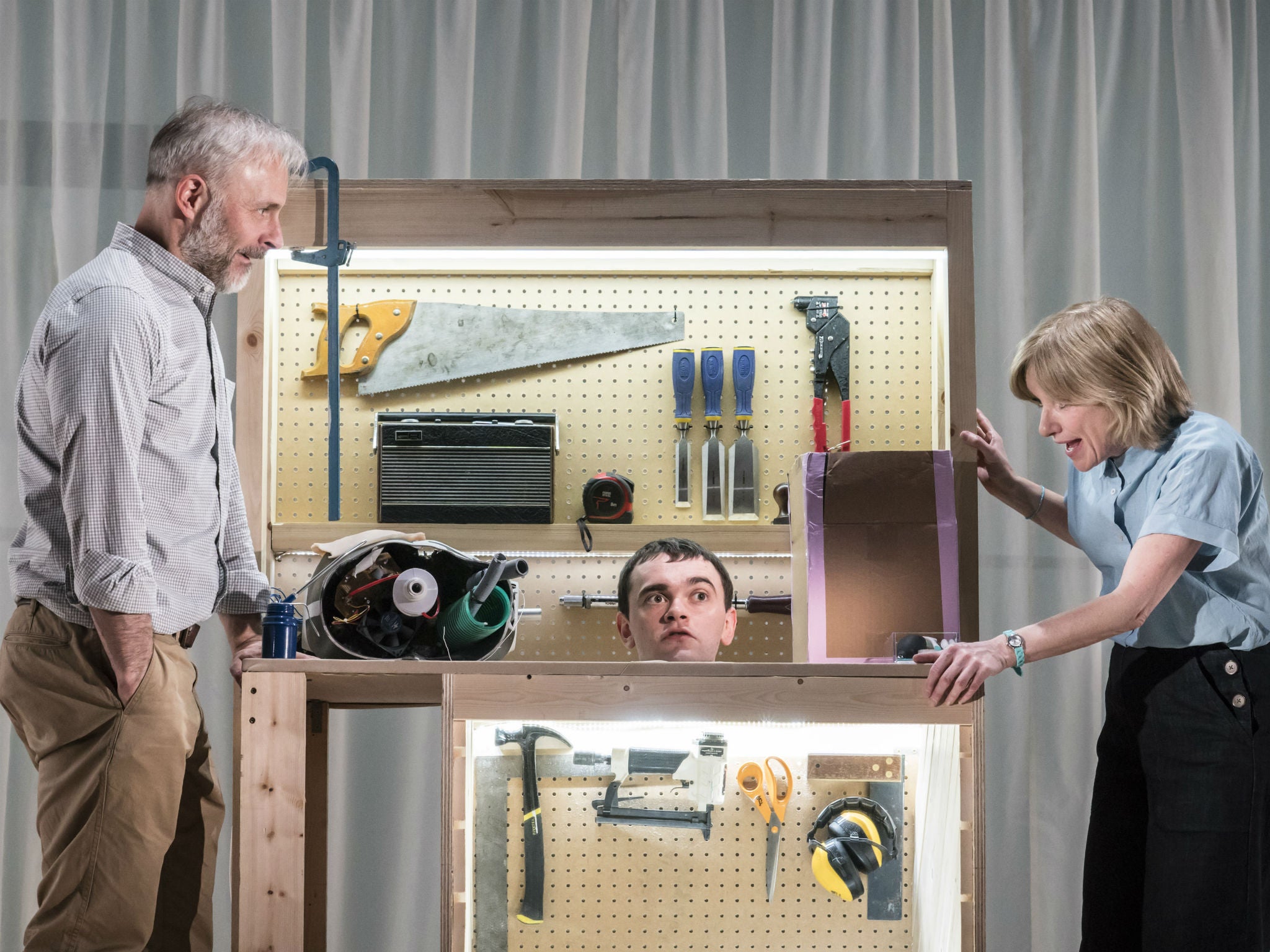Instructions for Correct Assembly, Royal Court, London, review: Astute dystopian satire
Hamish Pirie directs Thomas Eccleshare's play with flair, but there's a lack of human warmth to proceedings

Your support helps us to tell the story
From reproductive rights to climate change to Big Tech, The Independent is on the ground when the story is developing. Whether it's investigating the financials of Elon Musk's pro-Trump PAC or producing our latest documentary, 'The A Word', which shines a light on the American women fighting for reproductive rights, we know how important it is to parse out the facts from the messaging.
At such a critical moment in US history, we need reporters on the ground. Your donation allows us to keep sending journalists to speak to both sides of the story.
The Independent is trusted by Americans across the entire political spectrum. And unlike many other quality news outlets, we choose not to lock Americans out of our reporting and analysis with paywalls. We believe quality journalism should be available to everyone, paid for by those who can afford it.
Your support makes all the difference.“I thought that we could have a go at it together, you know like we did with the upstairs bed?” says Hari (Mark Bonnar) to his wife Max (Jane Horrocks). “You had natural flatpack talent,” he adds. “You said I was the Susan Boyle of DIY,” she remembers, looking chuffed.
It quickly becomes apparent this new DIY plan is a little trickier. It involves screwing together a bewildering jumble of plastic and metal body parts, to say nothing of mastering the chip at the back of the skull or getting the hang of the remote control that can adjust attitudes. The couple are assembling a robotised young man – and he looks identical to their deceased son, Nick.
Hari, quite the handyman the house, prides himself on being able to fix anything. But Nick proved to be beyond his father's powers of repair. The boy they proudly waved off to university became a deceitful junky, forever stealing money and promising reform.
At one vengefully destructive moment he tells his mother that he'd rather be dirty and high than accept the pristine and orderly life that they had mapped out for him. Thomas Eccleshare's play is at once an astute dystopian satire on the futile quest for programmed perfection and a moving study of parental grief and guilt.
In this production, directed with flair and ingenuity by Hamish Pirie, Brian Vernel pulls off a brilliant double by playing both flawed, jittery Nick and Jan, his idealised aspirational alternative. The play has an eloquently non-linear structure that sometimes leaves us guessing about which of them we are watching.
It's Jan not Nick who takes after his “parents” in showing an interest in learning the names of flowers and in model railways. Touching, we realise, in the inadequacy of its consolation. Nick, we see, desperately wants to make Hari and Max proud but doesn't have the right wiring for it and goes into fatal decline. Their love for him is deep and genuine, but trophy-children seem to be thick on the ground among their friends, a fact from which they have not sheltered him.
Cai Dyfan's clever set invites us to peer through a triangular slot at the short, earlier scenes which slide into view on a conveyor belt to the sound of a factory buzzer. Paul Kieve's illusions are startling and funny, allowing his head, at moments, to carry on talking even when disconnected to the rest of his body. I was less taken with the sequences where the cast are required to perform robotic choreography which is a banal way of emphasing computerised conformity.
Michele Austin is hilarious as the sort of mother who compulsively brags about her gifted children in the guise of complaining about the demands being imposed by the schools: “I mean what kind of pressure does it put on a child to be told you're an actual genuine prodigy. At architcture. At eleven years old,”
Eccleshare gets some laugh-out-loud comic mileage from the fact that Jan's comments, ranging from louty to political correct, have to be beeped by the remote control for social acceptability. There's an uproarious meltdown of his circuitry.
The grief, though, to my mind is not as well handled. The parents, despite two excellent performances, don't snag your heart enough with the grotesquely misguided mistake of their attempt at a second chance. There's a lack of human warmth which, given the theme, isn't the brand of imperfection the play is asking us to embrace.
Until 1 May (royalcourttheatre.com)
Join our commenting forum
Join thought-provoking conversations, follow other Independent readers and see their replies
Comments